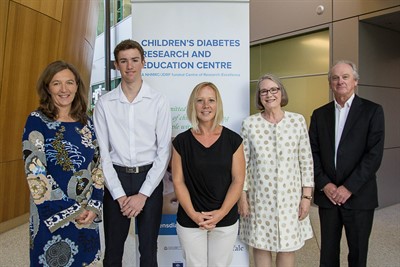Search

At what age does your child have the mental capacity to cross the road alone? Our researchers have the answer and it's older than you might think.

One in ten Australians have asthma and Dr Kimberley Wang from The Kids Research Institute Australia is on a mission to find out what causes it.

The Kids Research Institute Australia researchers have been awarded more than $11.3 million in funding from the National Health and Medical Research Council (NHMRC).

Launch of the WA Children's Diabetes Research and Education Centre for Research Excellence (CRE) on the eve of World Diabetes Day.
Researchers at The Kids Research Institute Australia have found daughters born to older mothers have higher rates of some mental health problems.

At this special Telethon Kids Institute lecture, Professor Leroy Hood will share his career journey and talk about the emergence of personalised medicine.

Christmas message from our Director
Researchers at The Kids for Child Health Research have been awarded more than $1.4M to assess how many juvenile offenders are affected by FASD.

Research for the Commissioner for Children & Young People seeking the views of >1,000 young people about their experiences accessing/using health services
Delivering tangible and measurable improvements to the health and wellbeing of children is at the centre of a bold new blueprint for child health research in WA
